With roughly 85% of homes in the United States dealing with hard water, a water softener is a piece of must-have equipment these days. However, traditional water softener systems are notorious for using massive amounts of salt to remove any hard minerals in the water (known as the ion-exchange process).
Fortunately, you can still get soft water without adding sodium if you choose salt-free water softeners. This system gives you soft water minus the monthly maintenance fees or the additional sodium content.
To help you choose the best salt-free system for your needs, we’ll include our top picks below. But first, let’s get into how salt-free water softeners work.
50 Ratings
It is a filter-based unit, so it will remove more than just hard-water-causing minerals– including chlorine, iron, and other sediments.
1,295 Ratings
This next salt-free water descaler system has a straightforward design, requiring little maintenance. As such, it protects your plumbing and various appliances from harmful scaling.
537 Ratings
We love this electronic water descaler from YARNA, which is designed with copper bands to surround your home’s main water line.
155 Ratings
The system utilizes two primary filters to provide you with softened water clear of any harmful contaminants. Both filters will need replacement once every three months.
34 Ratings
It has a 10 GPM flow rate, so you can count on this device to meet your home’s water needs without affecting the pressure.
113 Ratings
It has a maximum flow rate of 10 GPM, making it suitable to handle the daily water needs of your entire home.
In This Review & Buyers Guide
How Do Salt-Free Water Softeners Work?
Simply put, salt-free water softeners do not get rid of hard water minerals from your water. Instead, they alter the chemical components of calcium and magnesium– so they do not cling to the surfaces.
Since salt-free water softener systems don’t trap hard water minerals, you won’t need salt (or a regeneration cycle) to purge these minerals.
Note: Water softening pertains to the removal of hard water minerals. Since the salt-free process changes these minerals and allows them to stay in the water, the system is known as “water conditioning” instead of the standard water softening procedure.
6 Top Salt-Free Water Softener Picks to Purchase Today
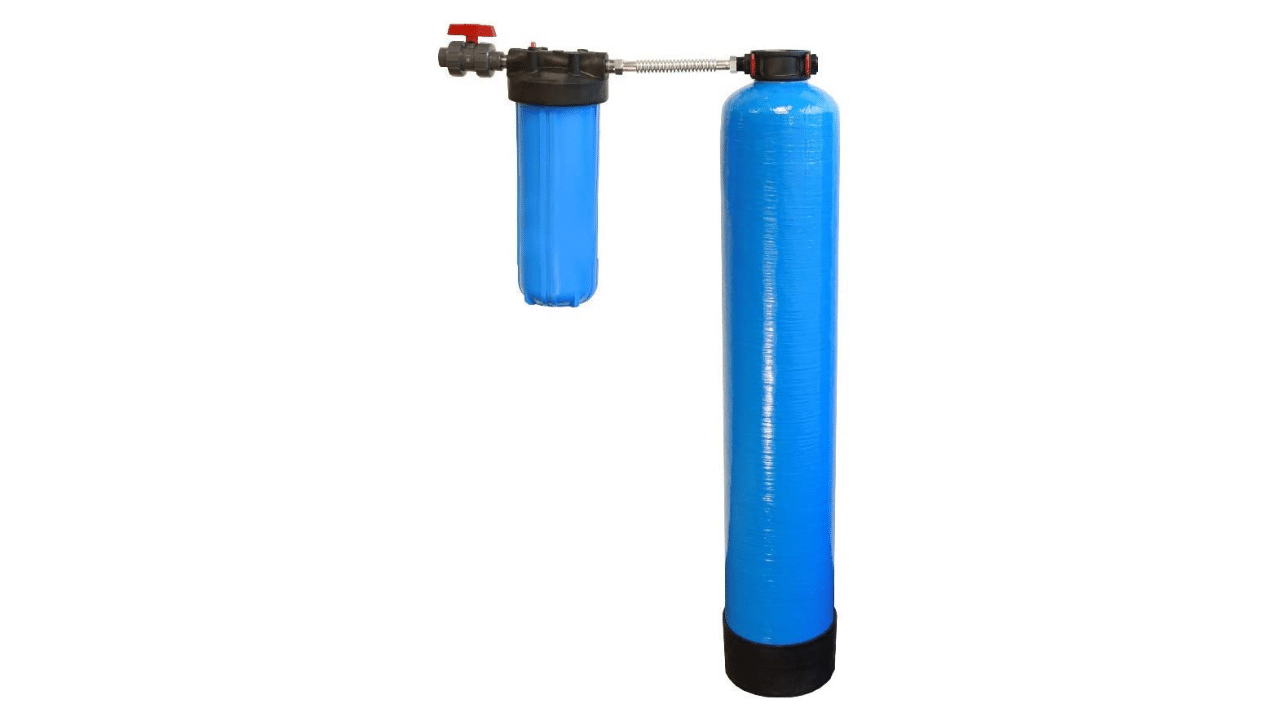
Let’s start this list with the crowd-favorite Tier1 Eco Salt-Free Water Softener, with a flow rate of up to 7 Gallons Per Minute (GPM). This makes it ideal for large homes with more than six bathrooms.
If you’re not the biggest fan of routine maintenance activities, this system doesn’t require backwashing, power, or salt. The primary upkeep required is the replacement of the filter cartridge every two months.
It is a filter-based unit, so it will remove more than just hard-water-causing minerals– including chlorine, iron, and other sediments. Many customers are satisfied with the softened water from the Tier1 Eco Series. Most enjoyed the crystal clear water directly from the tap.
Advantages
Disadvantages
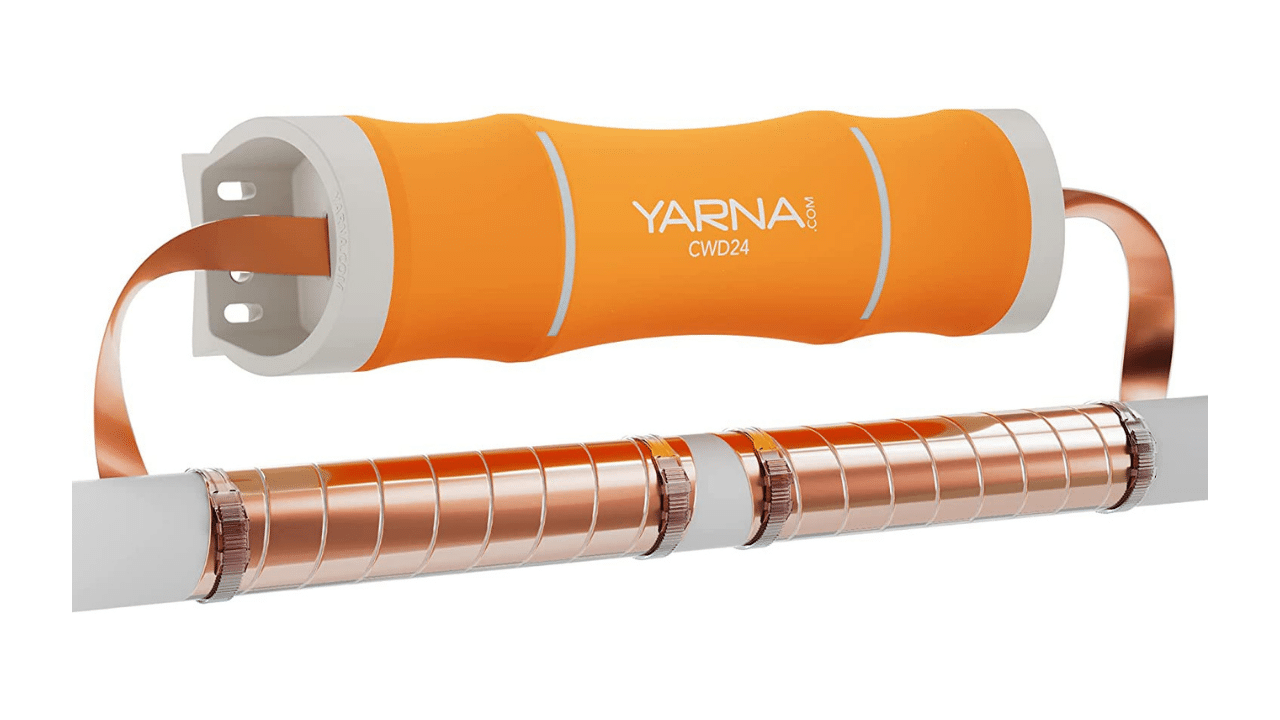
How would you like to have a salt-free water softener system with an innovative design and easy installation? Yes, you won’t need any plumbing experience to set it up!
The installation takes as little as 15 minutes, without any special equipment. We love this electronic water descaler from YARNA, which is designed with copper bands to surround your home’s main water line.
Once the water passes through this section, the water-softening process activates with electric impulses to turn the water particles into crystals. Since these crystals do not stick to each other, this effectively prevents scaling– which may lead to build-up and clogging in your pipes and appliances.
Advantages
Disadvantages
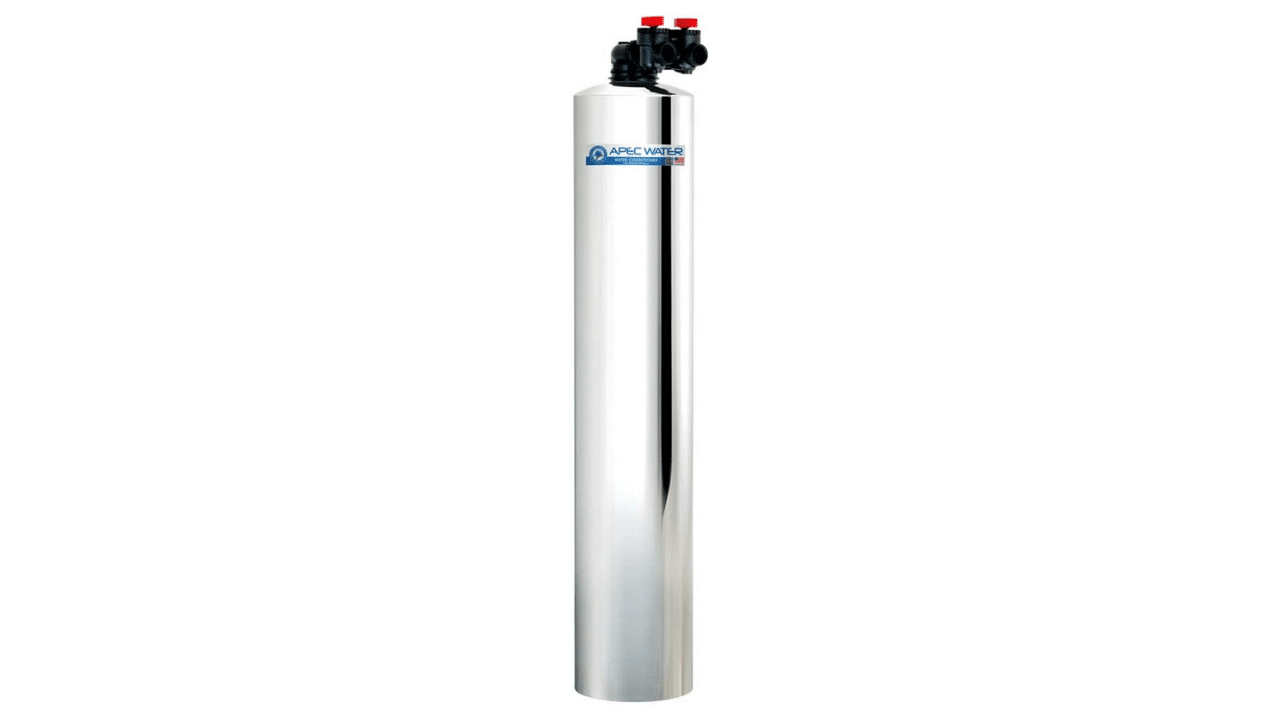
APEC is one brand you can rely on for your water softening needs. In particular, the features of the APEC FUTURA-10 Whole House Salt-Free Water Softener will give you your money’s worth!
It has a 10 GPM flow rate, so you can count on this device to meet your home’s water needs without affecting the pressure. Users also love the crisp, refreshing taste of the water it provides.
However, do note that this system is suitable for you if you have below 25 grains per gallon water hardness levels. It also doesn’t need backwashing, electric power, or salt. Moreover, APEC provides a generous 10-year warranty to protect your purchase. (Related: Are APEC Water Systems Worth It? (Reviews & Buying Guide For 2022))
Advantages
Disadvantages
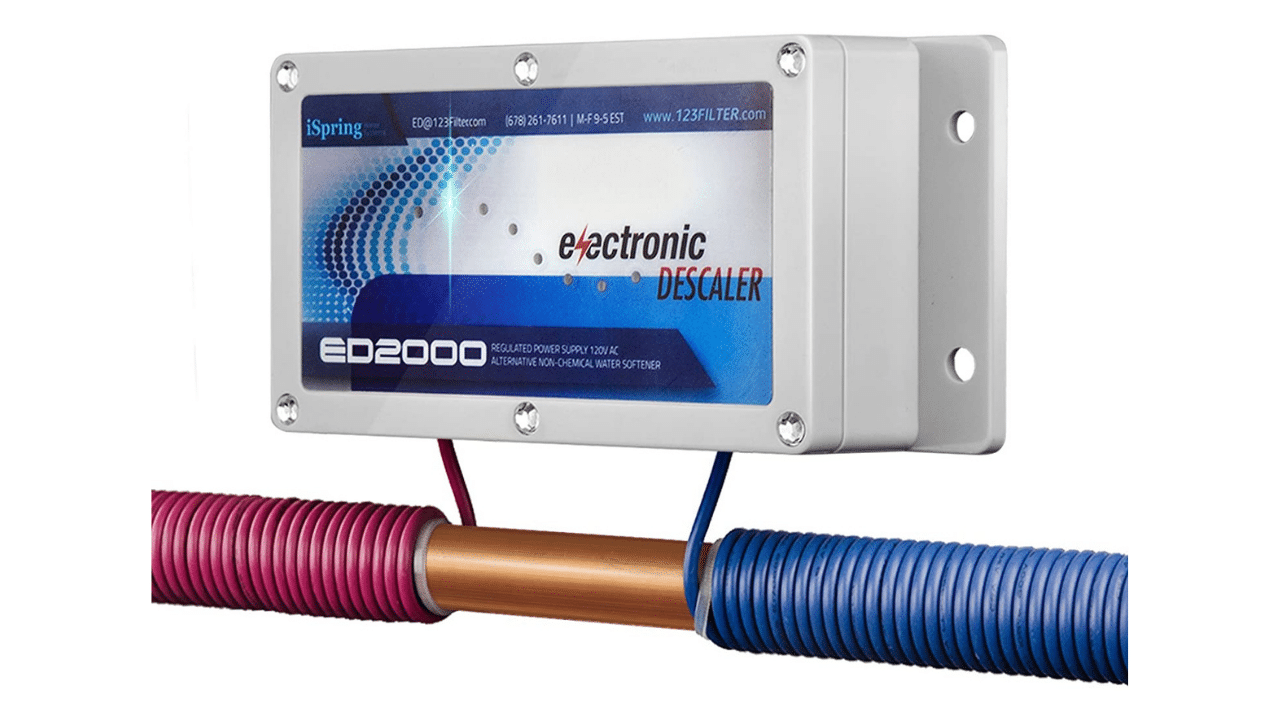
This next salt-free water descaler system has a straightforward design, requiring little maintenance. As such, it protects your plumbing and various appliances from harmful scaling.
How does it work? It sends electromagnetic impulses through the water once it passes the supply pipe. In return, the particles will be incapable of sticking together, which may cause clogging or other damage.
Additionally, this system also doesn’t require plumbing. To treat the water, you can quickly wrap the wires around the water line to form a coil (conduit for the electrical impulses). This system works with homes with hard water up to 19 grains per gallon.
Advantages
Disadvantage
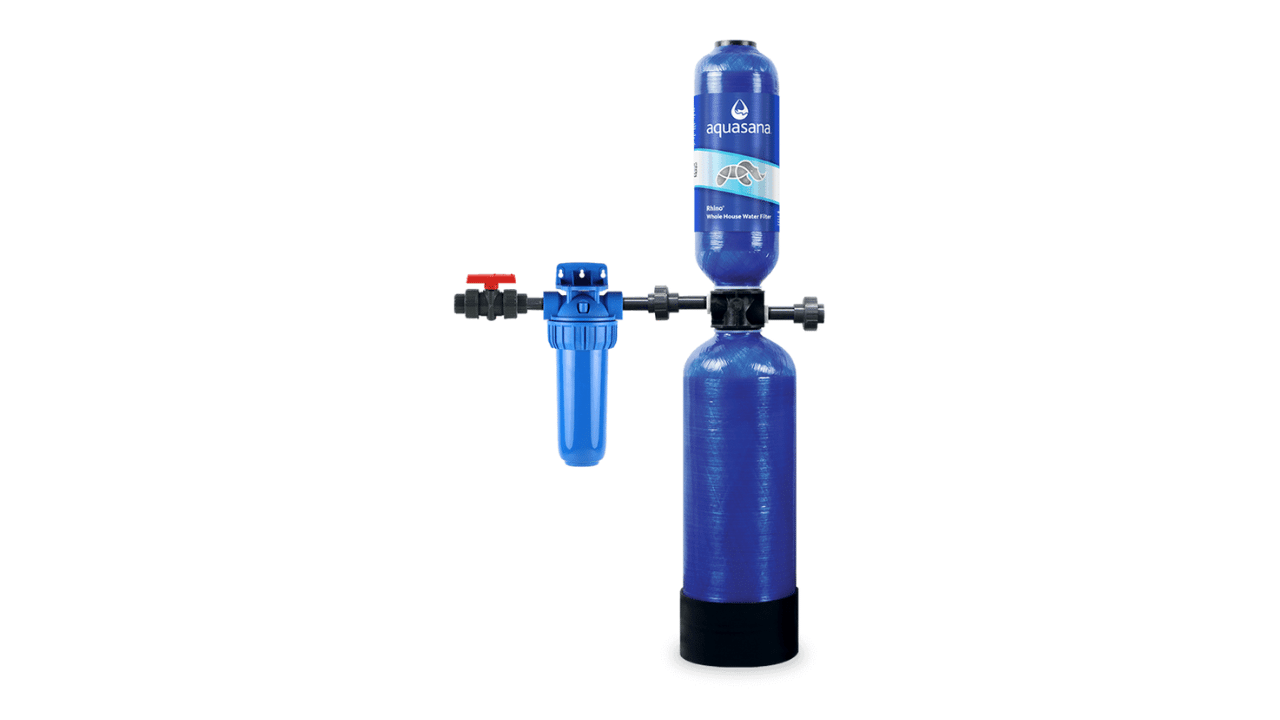
This next water softener option is a considerably hefty investment to make. However, it removes more impurities (calcium, lime, iron) than other options in the market with its carbon and KDFN filters.
Aside from providing you with softened water, it also removes toxic contaminants such as chlorine, lead, and mercury in the water. As a result, you’ll have a softer and healthier water supply at home.
It has a flow rate of 7 to 8 GPM, making it ideal for families with up to four members. The system utilizes two primary filters to provide you with softened water clear of any harmful contaminants. Both filters will need replacement once every three months.
Advantages
Disadvantages
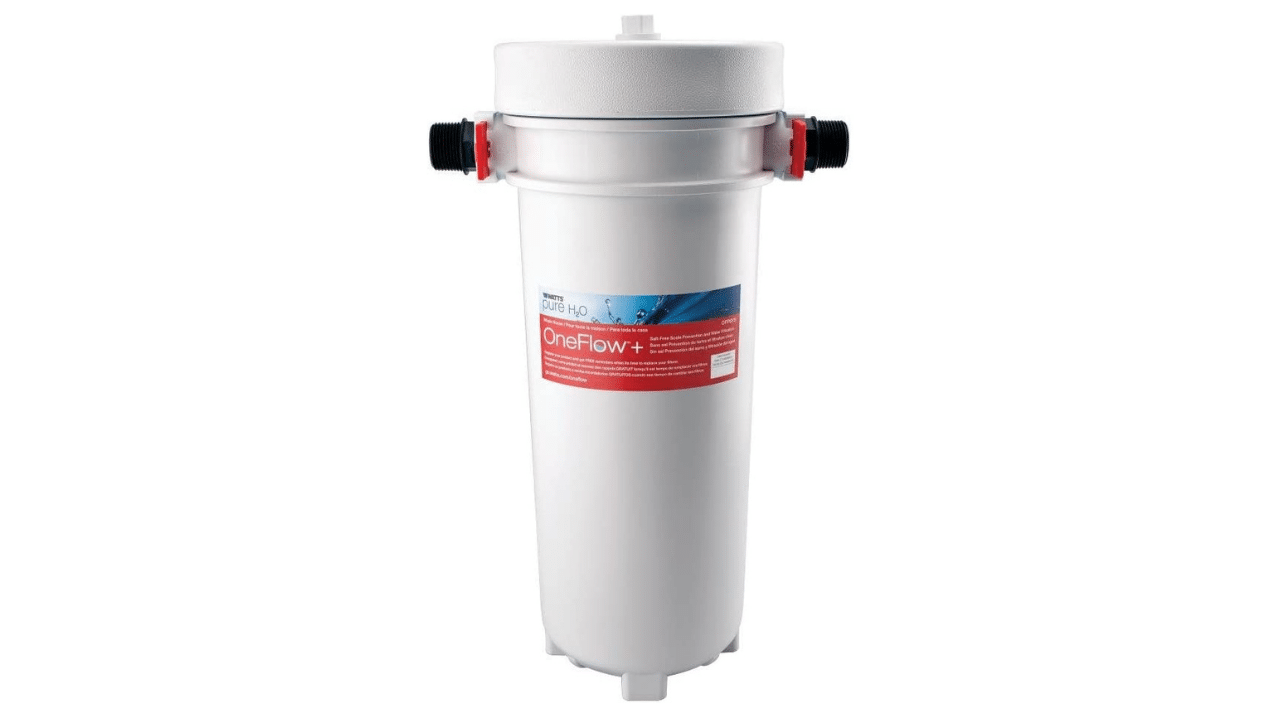
Last on our list (but definitely not the least) is the compact, low-maintenance OneFlow+ salt-free scale prevention and water filtration system. It has a maximum flow rate of 10 GPM, making it suitable to handle the daily water needs of your entire home.
The OneFlow+ utilizes two cartridge style filters to treat the water:
Advantages
Disadvantages
Frequently Asked Questions (FAQs)
Can salt-free water softeners remove iron?
Small amounts of iron are removed from the water through salt-free softeners; however, they are not equipped to deal with high levels of iron. Therefore, it will be best to opt for a traditional water softener.
How long does a salt-free water softener typically last?
The lifespan of a standard salt-free water softener may depend on its type. For example, an enclosed filter-based water softener may last for up to 6 years, while an electromagnetic water softener can last for 40 years or even more.
How do I ensure that my water softener is working?
Your water softener works if it prevents build-up in toilets, sinks, and faucets. When bathing, it should take less shampoo and soap to form suds. To determine if it is functioning normally in a more specific way, you can use a simple water hardness test kit.
How can I clean my salt-free water softener?
No cleaning is required for most salt-free water softeners. Filter-based water softeners need their filter to be replaced when it expires. Meanwhile, the coil fitting around an electromagnetic water softener pipe is also reasonably maintenance-free. You might just need to occasionally check your unit to ensure that dust and coil do not accumulate around.
